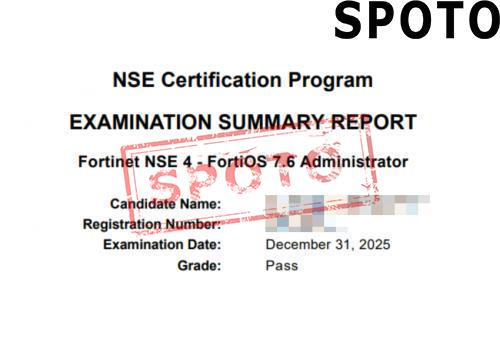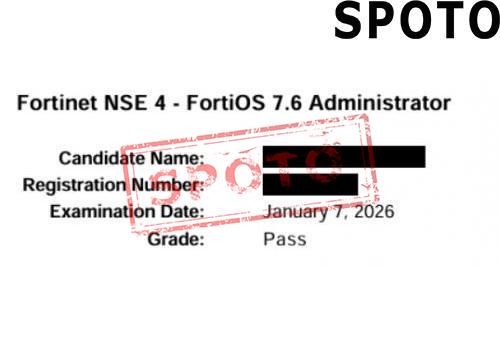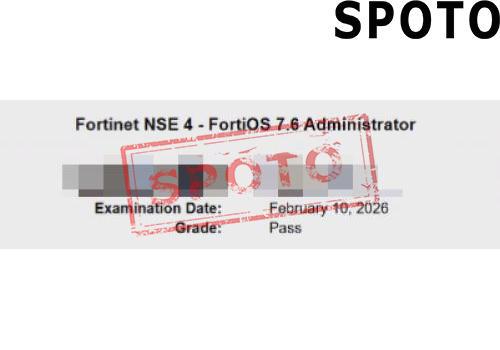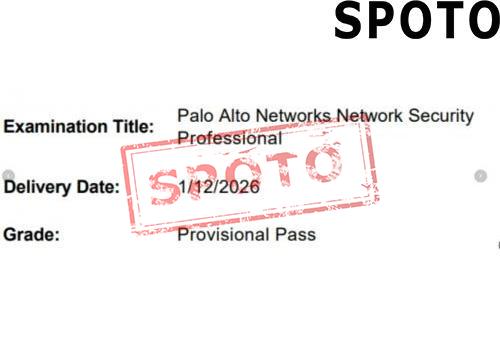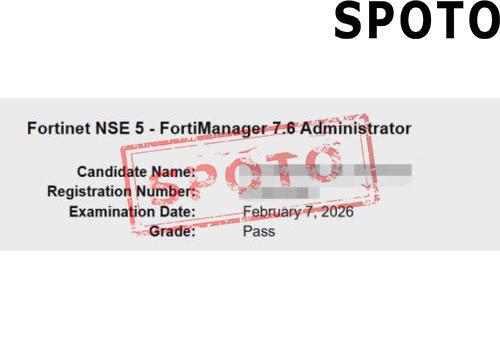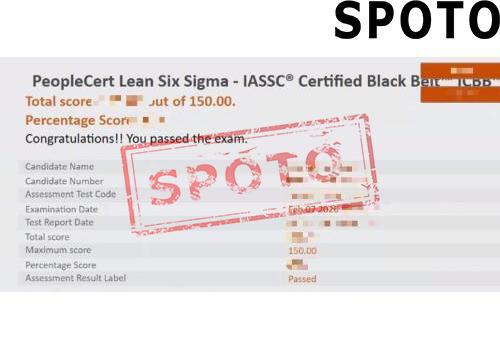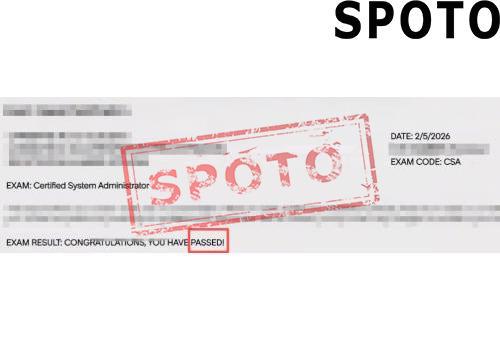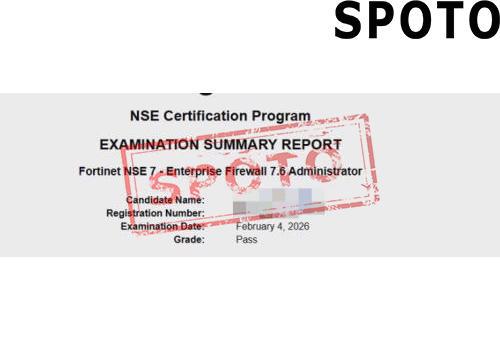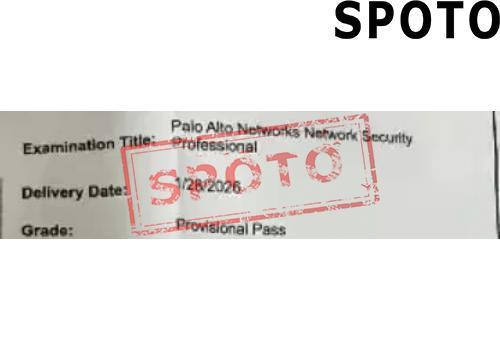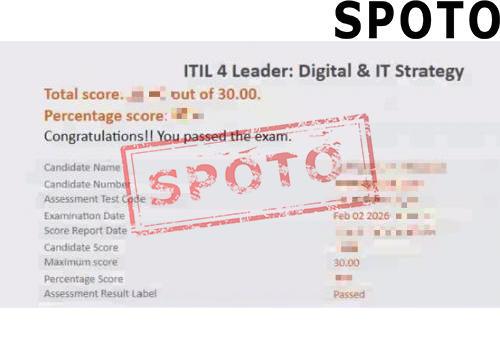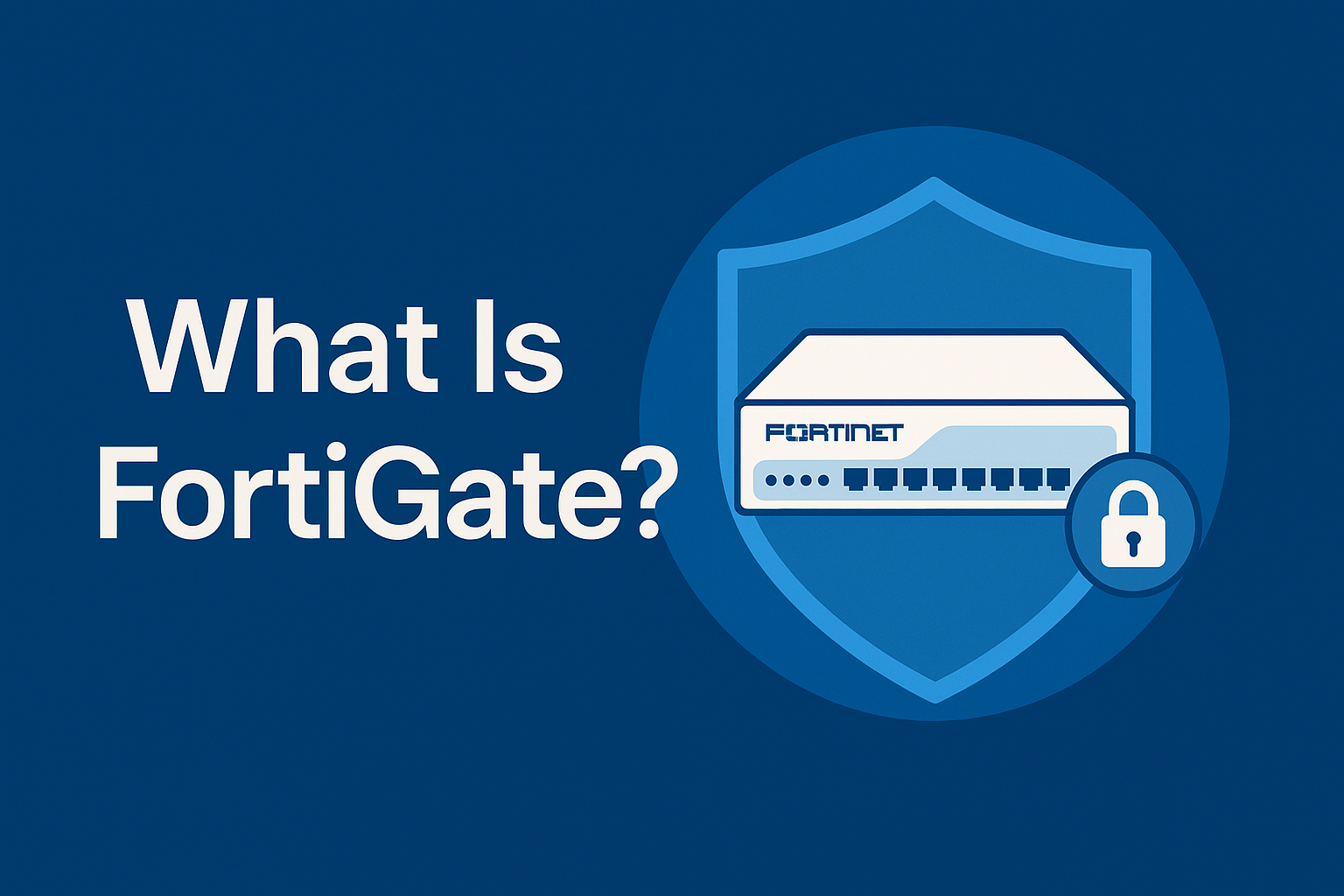
Table of Contents
In today’s hyper-connected landscape, organizations face an ever-expanding array of cyberthreats—ranging from sophisticated malware and ransomware to zero-day exploits and encrypted attacks lurking within SSL/TLS traffic. Traditional, port-based firewalls can no longer keep pace with the scale and complexity of modern attacks. Enter Fortinet’s FortiGate: a next-generation firewall (NGFW) platform that combines hardware-accelerated performance, deep visibility, and AI-driven threat intelligence to deliver comprehensive network security across hybrid environments.
What Is FortiGate?
FortiGate is Fortinet’s flagship next-generation firewall solution, designed to protect data, assets, and users across on-premises, cloud, and edge deployments. Built on Fortinet’s proprietary ASIC-based security processors, FortiGate appliances accelerate both security inspection and networking functions in a single, scalable platform. With over 50% global market share in NGFWs, FortiGate is the most widely deployed network firewall solution worldwide.
Key attributes of the FortiGate platform include:
-
Unified Security and Networking: Integrated threat prevention (intrusion prevention, antivirus, application control, web filtering) alongside advanced networking features (SD-WAN, VPN, routing).
-
ASIC-Powered Acceleration: Purpose-built NPUs (Network Processing Units) deliver high throughput and ultra-low latency, even when inspecting encrypted traffic.
-
AI-Driven Threat Intelligence: Continuous updates from FortiGuard Labs provide real-time protection against emerging threats, including those hidden in SSL/TLS streams.
-
Flexible Deployment Options: Available as physical appliances (small desktop units to high-density chassis), virtual machines, containerized workloads, and cloud-native instances.
Evolution and Architecture
Fortinet introduced the original FortiGate physical firewall in 2002. Since then, the platform has evolved into a comprehensive security operating system—FortiOS—that underpins all FortiGate models. FortiOS delivers a consistent feature set across hardware and virtual form factors, enabling centralized policy management and rich analytics via FortiManager and FortiAnalyzer.
ASIC-Based Security Processors
At the heart of every FortiGate appliance are patented ASICs, such as the SPU NP6 for data-plane acceleration and CP9 for control-plane efficiency. These processors offload security functions—like deep packet inspection and encryption/decryption—from the general-purpose CPU, ensuring line-rate performance even under heavy workloads, including full SSL/TLS inspection of encrypted traffic.
Fortinet Security Fabric
FortiGate integrates natively into the Fortinet Security Fabric, a broad ecosystem of FortiGuard-powered products and third-party solutions. The Fabric enables:
-
Automatic Threat Correlation: Alerts from FortiGate, endpoints, email gateways, and other Fabric devices are consolidated to accelerate incident response.
-
Adaptive Segmentation: Dynamic microsegmentation policies isolate critical assets and prevent lateral movement of attackers.
-
Single-Pane Management: A unified console for policy orchestration, logging, and compliance reporting reduces administrative complexity.
Core Capabilities
1. Advanced Threat Protection
-
Intrusion Prevention System (IPS): Real-time detection and blocking of network exploits and vulnerabilities.
-
Antivirus/Anti-Malware: Scans files at the gateway, blocking known malware signatures and behavioral threats.
-
Web Filtering & URL Categorization: Controls user access to malicious or non-productive websites.
-
Application Control: Identifies and manages thousands of applications (e.g., social media, VoIP) regardless of port or protocol.
-
Sandboxing: Suspicious files can be detonated in a cloud-based sandbox (FortiSandbox) to uncover zero-day malware.
2. SSL/TLS Inspection
With Gartner estimating that over 80% of web traffic is encrypted, traditional firewalls blind-spot critical threats within SSL/TLS streams. FortiGate’s high-performance SSL inspection decrypts, scans, and re-encrypts traffic inline—uncovering hidden malware and command-and-control communications without compromising throughput.
3. Secure SD-WAN
FortiGate’s Secure SD-WAN capabilities allow enterprises to:
-
Prioritize mission-critical applications.
-
Leverage multiple WAN links (MPLS, broadband, LTE) with dynamic path selection.
-
Enforce consistent security policies across all branches, reducing costs and simplifying operations.
4. VPN and Zero Trust Access
-
IPsec and SSL VPN: Provides secure remote access for users and site-to-site connectivity.
-
ZTNA (Zero Trust Network Access): Microsegmented access ensures users only connect to authorized applications, minimizing attack surface.
Deployment Scenarios
FortiGate’s modular design caters to a broad range of environments:
| Deployment Type | Form Factor | Use Case |
|---|---|---|
| Small Office / Branch | FortiGate-20 to -60E Series | Desktop appliances for SMBs and remote offices |
| Enterprise Campus / DC | FortiGate-1000 to -7000 Series | High-density rack units for data centers |
| Virtualized Environments | FortiGate-VM (VMware, KVM) | Cloud instances and private cloud integration |
| Containerized / Cloud | FortiGate CNF / Cloud NGFW | Kubernetes environments and public cloud security |
| As-a-Service | FortiGate-as-a-Service (FGaaS) | Fully managed firewall service |
Use Cases
-
Data Center Security: High-performance chassis models protect east-west traffic with deep inspection and segmentation, ensuring compliance and minimizing risk in critical infrastructure.
-
Branch Office Connectivity: Secure SD-WAN simplifies WAN management, lowers costs, and delivers consistent threat protection in distributed networks.
-
Cloud Workloads: FortiGate Cloud-Native Firewalls (CNF) secure microservices and APIs in containerized environments with zero operational overhead.
-
Unified SASE: Combined with FortiClient and FortiSASE, FortiGate extends zero-trust access to remote users, providing consistent policies and threat intelligence across the network edge.
Why Choose FortiGate?
-
Unmatched Performance: ASIC acceleration delivers multi-gigabit inspection—unlike software-only NGFWs—enabling full SSL/TLS decryption at scale without sacrificing user experience.
-
Comprehensive Threat Intel: Continuous threat updates from FortiGuard Labs incorporate global telemetry and AI analytics, ensuring timely defense against emerging attacks.
-
Simplified Management: A unified OS (FortiOS) across all models, along with centralized management tools, reduces complexity and operational overhead.
-
Scalability & Flexibility: From a small retail shop to global data center deployments, FortiGate scales with modular hardware, virtual instances, and cloud-native form factors.
-
Security Fabric Integration: Open APIs and built-in Fabric connectors allow seamless orchestration with Fortinet and third-party solutions, delivering end-to-end security automation.
